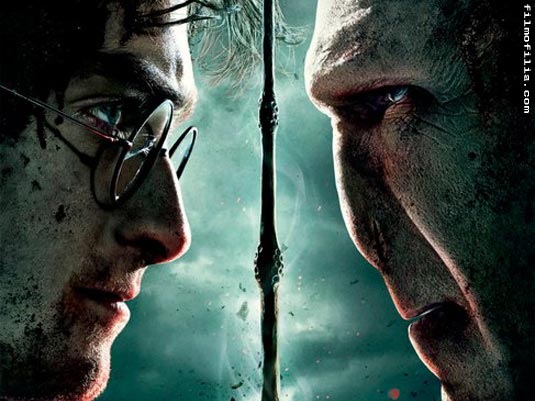As the 20th anniversary of the release of Harry Potter and the Sorcerer’s Stone recently passed, I have been celebrating by watching the films again.
I’m also reading through the books again, but the films are a quicker sit, meaning that in no time at all I found myself at the fifth film, “Harry Potter and the Order of the Phoenix.” And although I have been fully engrossed (also known as “obsessed”) with the Harry Potter series since I was seven years old, I noticed something in the storyline of the fifth film that I hadn’t noticed before.
For those of you who are not like me and do not have every single Harry Potter storyline memorized by heart, allow me to lay out the basics here: In the preceding film/book, Harry was kidnapped by his arch enemy Voldemort, where he was then tortured and had his life threatened—all of this after watching his friend Cedric Diggory be murdered. In this film/book, Harry is clearly dealing with PTSD as a result of what he experienced. He pushes his friends away, insults them, questions if he even needs friends at all or if he would be better off on his own, and all of this builds to him questioning if he is becoming more like Voldemort because he is simply so angry all the time.
Near the end of the film, Harry is actually possessed by Voldemort, quite nearly becoming him in a literal sense, but Harry manages to fight him off by remembering his friends and his love for them.
Now, I’ve always thoughts that an interesting part of the Harry Potter series was the fact that it drew so many parallels between Harry and Voldemort, showing how easy it could have been for Harry to turn into him had circumstances been different. Yet (comma) it wasn’t until I watched this film for the 108th time that I realized something deeper about this subplot, something that I hadn’t noticed before. Harry is a victim of abuse. And because of the mental effects of being so deeply and unalterably hurt, he runs the risk of becoming like his abuser, of hurting people in the same way that Voldemort hurts people.
And when I think about this interpretation, I can most certainly see it reflected in everyday life. For example, many of us know that abuse is a cycle. We have all heard of the child who is beaten by their parent growing up, only to turn around and beat their own child in adulthood. And personally speaking, when I think of the person who hurt me most in my life, I know that person was hurt in a similar way by another person at another point in time. It doesn’t make what that person did right, but it does explain why they did it.
Being hurt in some traumatic event causes a wide array of emotions. Being hurt makes you angry, and sometimes that anger isn’t always projected toward the right person. Sometimes you can’t get revenge or justice against the person or people who actually did hurt you, so you lash out. You react. And when I say that, it isn’t a judgement against anyone—it’s only natural. Again, personally speaking, I know that I’m not at my best when I’ve been hurt. That doesn’t necessarily make me or anyone else who reacts this way a bad person; it just makes us human.
But like Harry, we all have a choice when we’ve been hurt. Immediately after being hurt, when the pain is still fresh, of course you’re going to run the full gamut of emotions: bitterness, anger, hatred, vengeance, all of it. But you can choose to remain in that forever, or you can choose to seek help—whether it be from friends, loved ones, doctors, or medicine—and to try and pull yourself out of it. The dangerous part of choosing to remain in your bitterness forever is that you run the risk of becoming like the person who hurt you initially. If you keep pushing people away and feeding the anger in your soul, you may very well may become the abuser that you initially despised.
That is why it is so important to admit when you need help, to reach out and talk to someone about the emotions you’re experiencing. Because there’s nothing wrong with anger, especially not when it’s the natural response to abuse or pain, but there is something wrong with staying in that feeling and letting it turn you into someone else. And as alone as you might feel, even if you think that you’ve pushed everyone away and there’s no one there for you, there will always be someone, whether that be someone on the internet, a therapist, a doctor, a pet you can rant to, a diary, whatever might help to release some of that anger within you.
And when it comes to the people who have hurt us, sometimes it might help us to remember that they are hurt people as well. It doesn’t excuse what they did. It most certainly doesn’t make it better. But it does make them human beings—people who are dealing with their own pain and their own issues. They are not monsters, they are only people who are in need of help.
Maybe we aren’t always in the best positions to help them ourselves, but it might make it a little bit easier for us to forgive them. Not forget, but forgive, and in doing so, dispelling some of the anger, hatred, and feelings of vengeance that we might have toward them.
~
~
~
Author: Ciara Hall
Image: Indri Rizal/Flickr
Editor: Danielle Beutell
Copy Editor: Lieselle Davidson
Social Editor: Catherine Monkman











Read 1 comment and reply